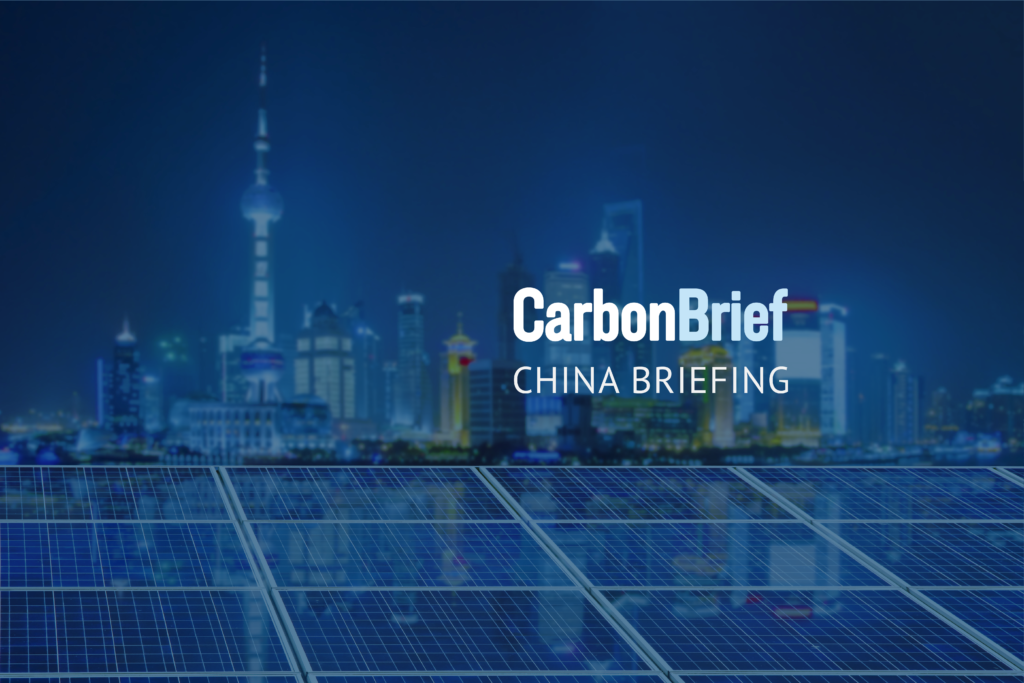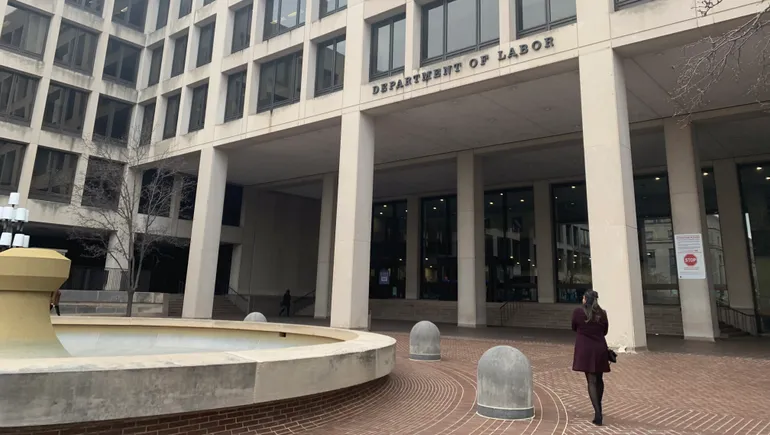Welcome to Carbon Brief’s DeBriefed.
An essential guide to the week’s key developments relating to climate change.
This is an online version of Carbon Brief’s weekly DeBriefed email newsletter. Subscribe for free here.
Hottest year on record
RISING TEMPERATURES: There is a greater than 99% chance that 2023 will be the hottest year on record, according to new Carbon Brief analysis. The analysis combined multiple temperature datasets to conclude it is “virtually certain” that this year will be the hottest for millennia. After a cooler start to the year, the past four months have seen truly exceptional global temperatures, surpassing prior monthly records by large margins, according to the analysis.
MYSTERY HEAT: Dr Gavin Schmidt, director of the NASA Goddard Institute for Space Studies, told the Washington Post that “it is indeed hard to give a good and informed answer to why this is happening – possibly for the first time”. Dr Zeke Hausfather, Carbon Brief’s climate science contributor who undertook the analysis, wrote in the New York Times that the ”acceleration” in warming “means that the effects of climate change we are already seeing – extreme heatwaves, wildfires, rainfall and sea level rise – will only grow more severe in the coming years”.
Fossil fuels under fire
ONE VOICE: The European Union has agreed to push for the “phase out” of all fossil fuels at the upcoming COP28 climate summit in Dubai in late November, Reuters reported. This could set up the bloc “to be one of the most ambitious negotiators” at the summit, according to the newswire.
FIGHTS FUELLED: Climate Home News reported that “negotiators from Africa and India have set out separate plans to push developed countries to do more to move away from fossil fuels” at the summit. Meanwhile, Axios reported that the host of the talks, UAE’s Sultan Al Jaber, has called for “a responsible phasedown of unabated fossil fuels”.
LOSS AND DAMAGE: Elsewhere, the Financial Times reported that countries are at odds over how to run the “loss and damage” fund agreed at the COP27 climate summit in Egypt last year, which was widely viewed as a historic step forward for climate justice. According to the FT, representatives from the negotiating bloc of G77 nations plus China, a large coalition of developing countries, were “considering abandoning” discussions underway in Aswan in Egypt amid a push from the US to allow the World Bank to be in charge of the fund.
- BRAZIL DROUGHT: The Amazon river’s water level fell to its lowest in more than a century, leaving boats stranded and cutting off food and water supplies to remote villages, CNN reported.
- GREEN BELT: According to Xinhua, Chinese president Xi Jinping said the country will double down on green development “as one of the major steps to support the joint pursuit of high-quality belt and road cooperation”. (The belt and road initiative is China’s major infrastructure venture involving many developing nations across Asia and Africa.)
- UK HEAT: The UK’s National Infrastructure Commission has urged the government to phase out gas boilers and spend billions on rolling out heat pumps, the Daily Telegraph reported.
- CLIMATE STALEMATE: Russia’s opposition to holding the COP29 climate summit in an EU nation in eastern Europe next year has “left nations scrambling to find an alternative in time to organise the massive global event”, Reuters reported.
- OIL AND GAS DASH: The secretary general of the Organization of the Petroleum Exporting Countries (OPEC), Haitham Al Ghais, said Africa should be allowed to use its oil and gas to fight energy poverty, “a position often repeated by the fossil fuel industry to increase oil production on the continent”, Reuters reported.
How much global investment in electricity grids is needed annually by 2030, if national climate targets and reliable power supplies are to be achieved, according to a new report from the International Energy Agency (IEA) covered by the Guardian.
- The world may have reached a “global irreversible solar tipping point”, where solar energy gradually comes to dominate global electricity markets – even without any further climate policies, a new paper in Nature Communication suggested.
- A new analysis in Climate Policy discussed ways to better integrate the perspectives of livestock keepers in Kenya, Ethiopia and Uganda in indicators for tracking climate adaptation, which tend to be limited to government documents only.
- Limiting global warming to 2C above pre-industrial levels would leave the Asia-Pacific, Europe and the US “highly exposed to “stranded assets”, especially coal plants”, a new paper in Nature Communication found.
(For more, see Carbon Brief’s in-depth daily summaries of the top climate news stories on Monday, Tuesday, Wednesday, Thursday and Friday.)
Toxic algae on UK’s largest lake
Lough Neagh – a lake in Northern Ireland that is larger than the country of Malta – has been plagued by blue-green algae that can negatively impact humans, plants and animals. The image above shows the blooms visible from Copernicus satellite imagery on 4 September. The green swirls of algae are particularly noticeable on the eastern side of the lake. Scientists told Carbon Brief that agricultural nutrient runoff and climate change are the main roots of the problem – and that there is no “silver-bullet” solution.

A young activist’s campaign to save Africa’s vanishing Lake Chad
This week, Carbon Brief speaks to young Nigerian climate activist Adenike Oladosu about her work to raise awareness about the rapid disappearance of Lake Chad.
The discussion of climate change is not a priority in many African countries, but it is driving some of the most striking upheavals across the continent. One example is the shrinking Lake Chad, which has been linked to conflict and migration in the Sahel. Once the world’s sixth-largest lake, it has shrunk by around 90% since the 1960s.
Adenike Oladosu learned about Lake Chad’s precarious state while researching herdsmen-farmers conflicts as a university student in Nigeria’s middle-belt region. She was surprised that an issue usually framed as an ethnic war was essentially a fight for depleting resources.
Inspired by the likes of Swedish activist Greta Thunberg, Oladosu decided to begin a Fridays for Future climate strike in Abuja, Nigeria’s political capital. She printed climate signs and stood alone at busy intersections; she also went to schools and churches. Soon, other young people joined her.
“The world needs to know about Lake Chad, because it doesn’t affect Nigeria alone, it affects the country around, including Niger, Chad and Cameroon,” Oladosu said. “My understanding is the fact that if you don’t know that a problem exists, you can’t solve it. Understanding that a problem exists is the first step towards solving the problem itself.”
On Twitter, Oladosu is relentless about campaigning for the restoration of Lake Chad. And she believes awareness about the issue is growing. In November 2022, on the campaign trail, Nigerian president Bola Tinubu promised to “recharge” the lake.
Earlier this year, as a fellow of the “planetary scholar and artists in residence” programme at the Justus Liebig University in Germany, Oladosu used remote-sensing technologies to observe and present the lake as a threatened space, raising more awareness about “the planetary dimensions of the crisis.”
For Oladosu, the shrinking of Lake Chad is also an issue of climate justice, which is connected to human rights. As of August 2023, more than six million people were living as displaced persons in the Chad basin, according to the UN. If Lake Chad was in Germany, she questioned, would it have shrunk by 90%?
Ahead of COP28, Oladosu joined the ONE campaign team in October to lobby for African priorities at the EU parliament in Brussels. For her, the restoration of Lake Chad should be one of the issues to take centre stage at the climate summit. She told Carbon Brief:
“If Lake Chad dries out it could become a battlefield for terrorists. If we want to achieve peace and security in the region, recharge Lake Chad in order to strengthen the livelihood in the region. This could be done through climate finance. Also, Lake Chad isn’t just an economic issue, it is a cultural site that unites. This is a decade of ecosystem restoration, Lake Chad should not be left behind.”
CLIMATE WRECK: On the podcast Inherited, storyteller Mo Isu traced the repetitive cycle of loss and rebuilding in the rural Niger Delta region of Nigeria as the country weathers extreme seasonal flooding.
LOOKING BACK: Grist examined the historical link between environmental disasters and societal collapse.
GREENWASHING: The New Yorker reported on how a major carbon offsets firm sold millions of credits for carbon reductions that “weren’t real”.
DeBriefed is edited by Daisy Dunne. Please send any tips or feedback to [email protected]
Sharelines from this story




















Discussion about this post